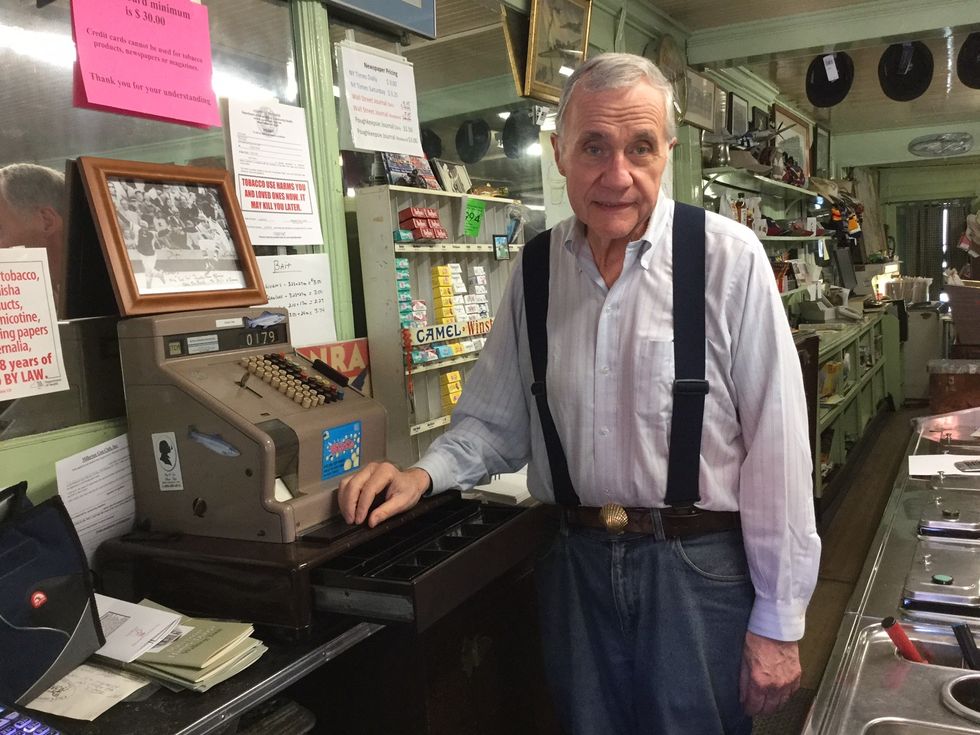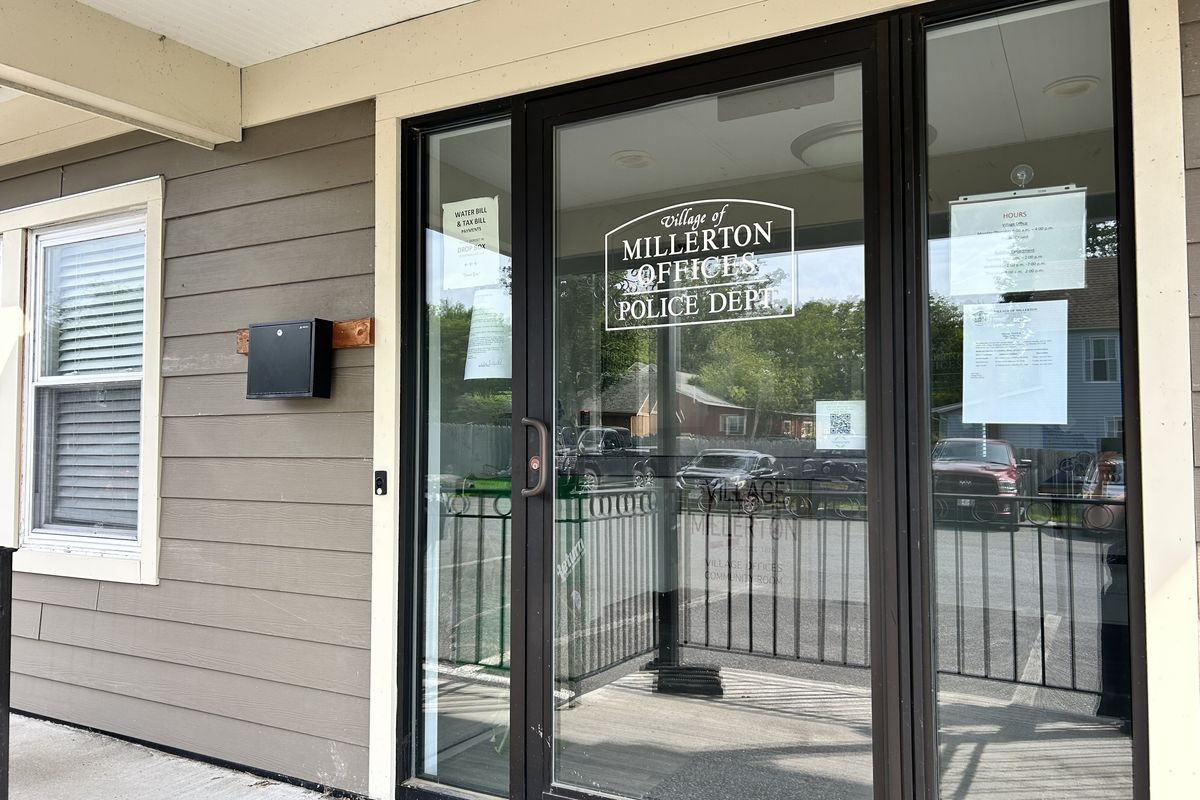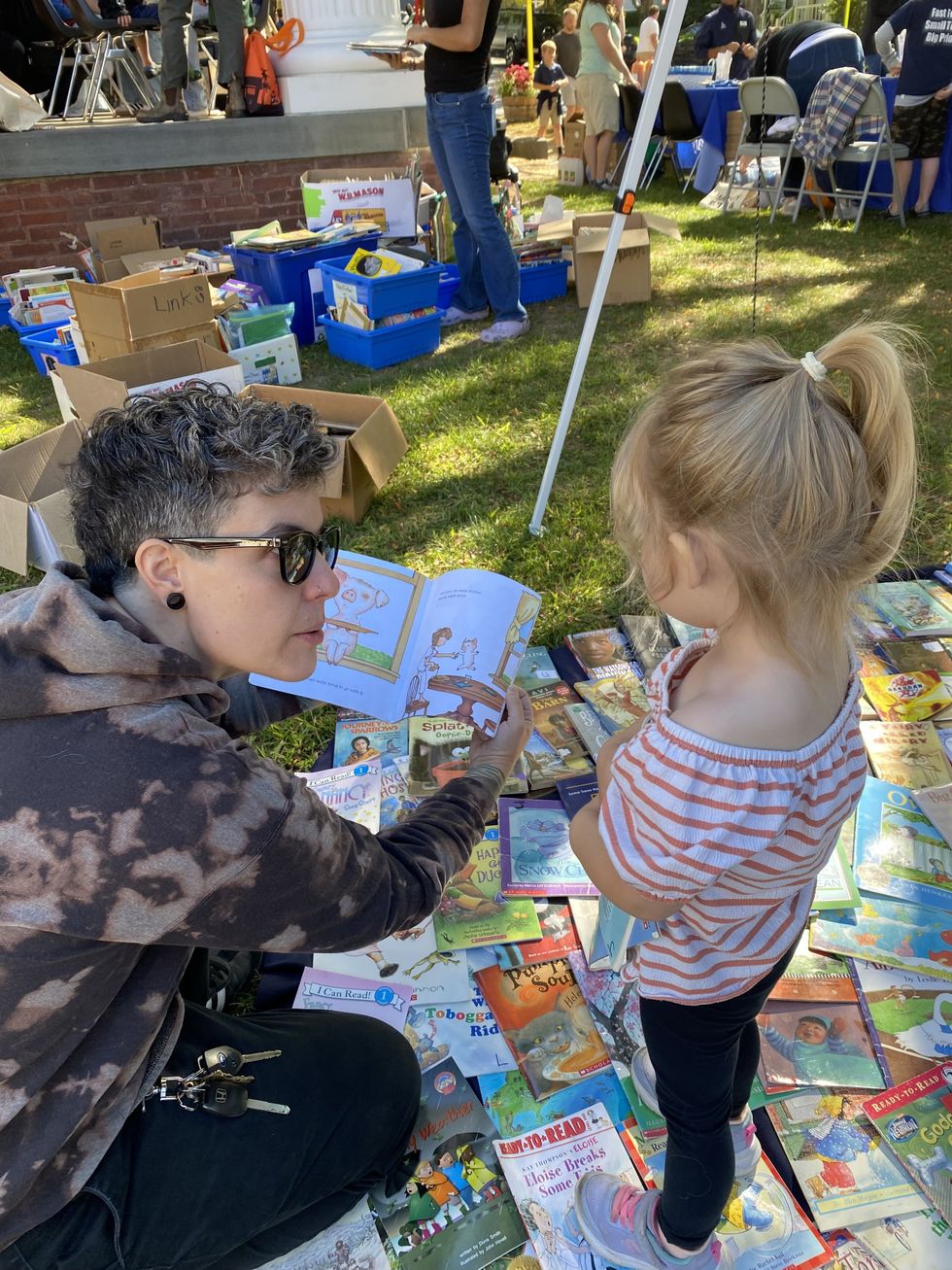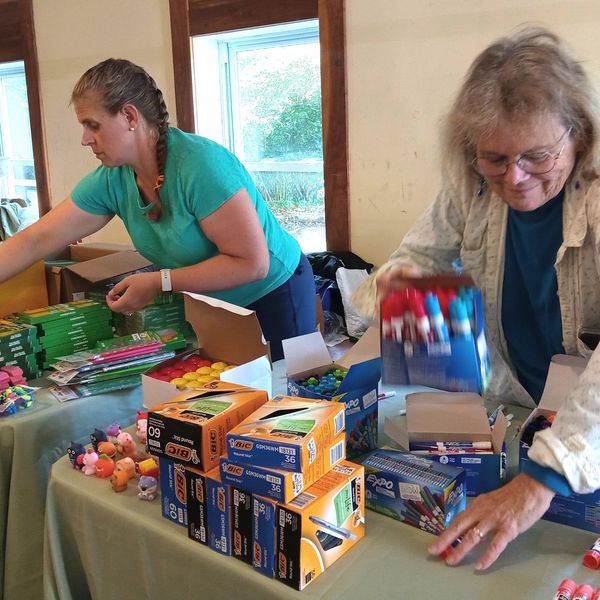Terni’s bids farewell to Millerton after 100 years of business

A third generation shopkeeper, Phil Terni, grandson of Terni’s founders Paul and Assunta Terni, shared memories of the centennial business last year while still manning the store. Photo by Kaitlin Lyle









 A popular feature of the Millbrook Library lawn area was a carpet of children’s books being given away for free. Appealing to little Julien Gulbrandsen, 3, of Pleasant Valley was the story of a pancake, being read by her mother Lauren Gulbrandsen. It is likely that the little book went home with them.Photo by Leila Hawken
A popular feature of the Millbrook Library lawn area was a carpet of children’s books being given away for free. Appealing to little Julien Gulbrandsen, 3, of Pleasant Valley was the story of a pancake, being read by her mother Lauren Gulbrandsen. It is likely that the little book went home with them.Photo by Leila Hawken Family fun and community were the order of the long-planned Community Day, on Saturday, Sept. 20, as village turned out to welcome visitors from throughout the region for a day of activities, contests, parades, displays, sales and the joy of being together.Photo by Leila Hawken
Family fun and community were the order of the long-planned Community Day, on Saturday, Sept. 20, as village turned out to welcome visitors from throughout the region for a day of activities, contests, parades, displays, sales and the joy of being together.Photo by Leila Hawken





